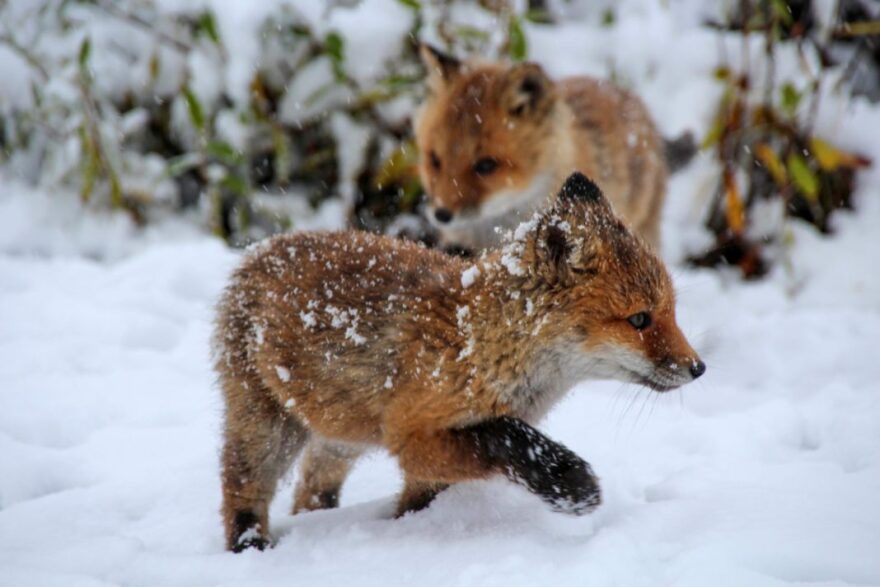Three foxes in the Western Alaska community of Hooper Bay have tested positive for rabies. But the Yukon-Kuskokwim Health Corporation, or YKHC, said that there is no known human exposure to the virus in the community.
Rabies, which attacks the nervous system, is always present in low levels in Western Alaska fox populations, according to the Alaska Department of Fish and Game. But it can sometimes develop into a larger outbreak – which increases the likelihood that it will spread to pets.
“Vaccinations are the only way to ensure that the pet is protected against rabies,” said Brian Lefferts, the director of public health at YKHC. “If not vaccinated, and an animal is attacked by a rabid animal, then rabies is 100% fatal.”
Lefferts said that vaccinating pets also lowers the risk of a pet passing rabies to a human.
“We're not only protecting our pets in that situation, but you're also protecting the people in your household,” Lefferts said.
Globally, the main way people get rabies is from a domesticated animal. Rabies is transmitted mostly through bites or scratches from infected animals because the virus that causes the disease resides in saliva.
There are two forms of the disease in pets, which can cause seizures, aggression, irritability, foaming at the mouth, paralysis, staggering, and loss of appetite.
“What we usually just say is look for anything unusual and report it,” Lefferts said.
In 2021, an outbreak of rabies in foxes around Nome prompted the euthanasia of multiple foxes and pet dogs.
The three Hooper Bay foxes that tested positive for rabies were sent to the Alaska Department of Fish and Game on Jan. 22.
YKHC said that after increased fox sightings in Hooper Bay, the health corporation hosted a pet vaccination clinic and trained two vaccinators in the community. It’s part of a broader region-wide program run through the YKHC Office of Environmental Health that vaccinates hundreds of pets in over a dozen communities each year.
While the rabid foxes were collected from Hooper Bay, YKHC recommends that everyone in the Yukon-Kuskokwim Delta vaccinate their dogs and cats for rabies and be aware of the signs of the disease.
“Just because there's not a known rabid fox or anything like that in a community doesn't mean that we don't have rabies present,” said Lefferts.
If you are bitten by any kind of animal, YKHC recommends immediately washing the wound and visiting your local clinic or hospital. For anyone who suspects that their cat or dog may have been bitten by an animal, YKHC said to contact its office of environmental health immediately at 907-543-6420 or oeherabies@ykhc.org.
If you suspect that a wild animal has rabies, YKHC said not to shoot it in the head. The brain needs to be in one piece for rabies testing.
Copyright 2025 KYUK

